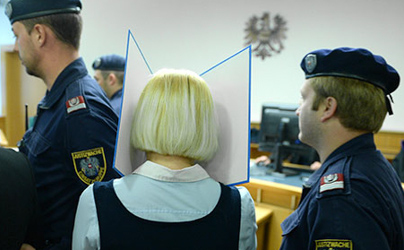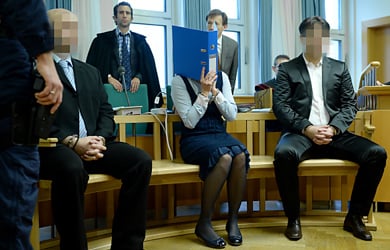Kristijan H. (35) is accused of murdering two men because he feared they would blow the whistle on his illegal diesel business.
His elder sister and a 30-year-old friend are alleged to have been his accomplices in the attack on January 11th.
Truck driver Zlatko N. (45) and Horst Waldemar W. (57) – who had been working as a driver for Zlatko – were murdered in the bloody attack in Odoakergasse in Ottakring, Vienna.
They had been working with Kristijan H., importing around 1.53 million litres of diesel directly to service stations without paying some €600,000 worth of diesel tax.
Kristijan H. remained silent in court, saying only that he had set out his “motives and reasons” in a letter to the court and prosecutor and he could say no more, claiming he had been threatened.
The prosecutor said that Kristijan H. had initially planned to kill the pair with a pipe bomb but had decided against it as he thought it could injure onlookers.
He shot Zlatko N. in the head and chest as he sat in a parked car. He had planned to shoot German Horst Waldemar as well but his revolver jammed and he threw a hand grenade into the car instead.

His 43-year-old sister is accused of helping him organise the murder and driving him and his friend to Odoakergasse and then helping them escape after the shooting.
She denies any involvement and said that she believed she was driving them to a business meeting. The 30-year-old alleged accomplice was seriously injured when the grenade exploded and also denies having known about Kristijan H’s plan.
The trial is scheduled to last for three days and if found guilty the trio face life imprisonment.
The accused’s 63-year-old father has already been sentenced to nine months in prison and fined €1,800 for bringing his son the hand grenade from Croatia.



 Please whitelist us to continue reading.
Please whitelist us to continue reading.
Member comments